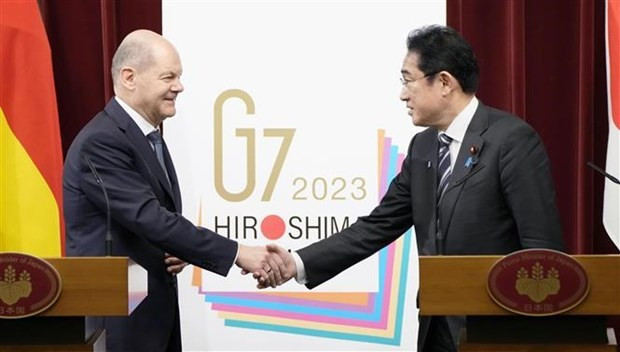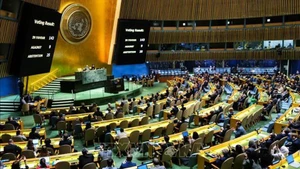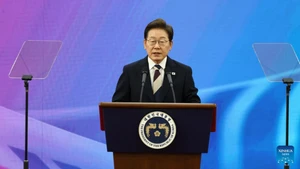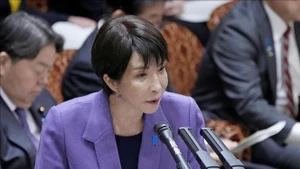Accompanying the German leader on his visit to Japan were the Ministers of Economy, Foreign Affairs, Finance, Transport, Interior and Defence, including a business delegation from many large German corporations.
During his visit, Prime Minister Scholz and ministers held bilateral talks with their Japanese counterparts, and then attended a joint discussion session chaired by the Prime Ministers of both countries.
Apart from the conflict in Ukraine, the main concern was also economic policy, energy and raw materials. Right before his trip to Japan, Prime Minister Scholz described the East Asian country as a model for securing raw materials, while Germany aspires to be more independent from the supply of raw materials. The two Prime Ministers also met with representatives of businesses from the two countries.
Prime Minister Scholz chose Japan as the first destination in Asia because he stressed that Tokyo is an important partner of Berlin. The two countries stand side by side in safeguarding the rules-based international order, as well as upholding the fundamental principles of the United Nations Charter.
Speaking after the consultation, Prime Minister Scholz said that Germany and Japan wish to strengthen cooperation, especially on economic issues. The German leader said both countries want to learn big lessons from the economic dependence caused by the disruption of COVID-19 and the conflict in Ukraine. The two leaders emphasised the need to strengthen and diversify supply chains, which have been affected by many factors.
Japanese Prime Minister Fumio Kishida affirmed that Germany is Japan’s most important trading partner in Europe. Beyond economics, Kishida found that the conflict in Ukraine has made the enhancement of its security cooperation, between Japan and Germany, more important than ever. He stressed that the two countries want to strengthen their influence in strategic areas while sharing best practices to tackle challenges.
Germany and Japan agreed to work closely in response to financial fluctuations, stemming from problems with Western banks, while keeping a close eye on global markets and economies. The two sides will work to reach an agreement on a global digital tax and come to an implementation of this agreement, gradually solving the debt problem of developing countries, following the framework of the Group of the world's major advanced and emerging economies (G20). The two sides also agreed on the need to strengthen supply chains and ensure economic security.
The Ministers of Defence from the two countries stated that Tokyo and Berlin will discuss new German military operations in the region, as well as joint exercises. The two sides also pledged to establish a legal framework to facilitate joint operations of the two countries' militaries. Prime Minister Olaf Scholz said that the German military will carry out a mission in the Asia-Pacific region, in the coming years.
Japan is Germany's second-largest trading partner in Asia, with bilateral trade turnover reaching 45.7 billion EUR in 2022, up 9.6% over 2021. The two countries share common benefits and values, linked together through many cooperation agreements, as well as within the framework of the Group of major industrial countries (G7) and shared commitment to multilateralism based on international rules. In 2023, Japan took over the rotating Presidency of the G7 from Germany.
The consultation between the two governments, within the framework of German Chancellor Olaf Scholz's visit to Japan, has contributed to deepening the important strategic partnership between the two countries, promoting political and economic cooperation, as well as strengthening cooperation and exchange mechanisms, between Germany and Japan.
















